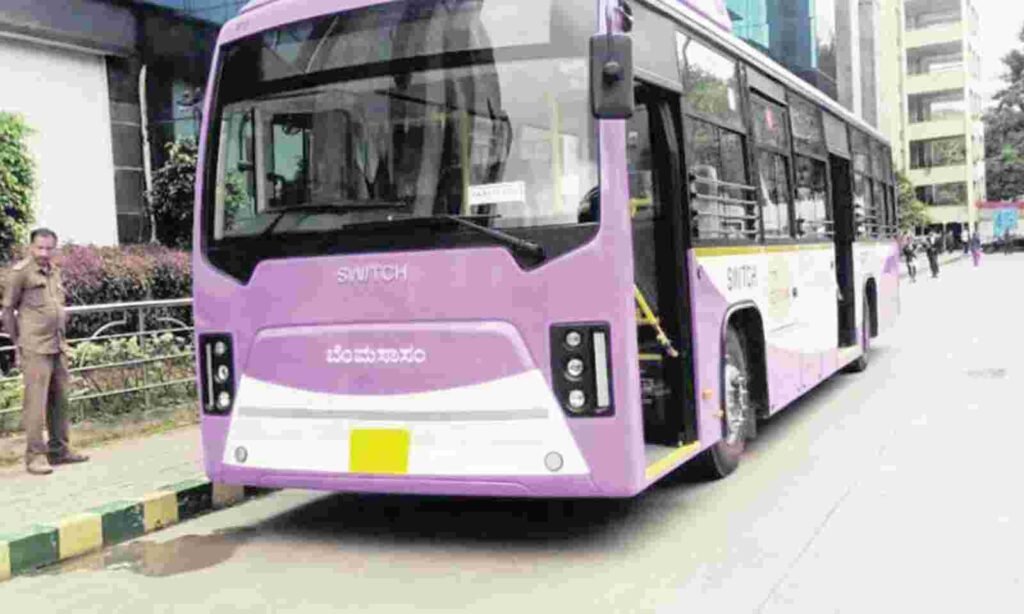Electric vehicle (EV) producers are looking forward to many steps to propel the industry forward as the interim Union Budget 2024 approaches. While some are seeking clarification on the Faster Adoption and Manufacturing of Hybrid and Electric Vehicles (FAME III) initiative, others are seeking support in the Goods and Services Tax (GST) laws.
2014 saw the introduction of the FAME (Faster Adoption and Manufacturing of Hybrid and Electric Vehicles) Scheme. For FAME I, the Center had set aside Rs 895 crore for the years 2015 through 2019. After receiving approval in 2019, the FAME Scheme’s Phase II was put into action in April at a cost of Rs 10,000 crore over the course of three years.
The Center anticipates announcing the FAME scheme’s third installment in the 2024 budget, with a budgetary allocation of Rs 10,000–12,000 crore. The production-linked incentive (PLI) scheme, which has high minimum net worth criteria, and other exclusionary constraints made an extension of the program the electric vehicle industry’s top demand. This led to the implementation of FAME III.
What are the EV industry leaders saying?
“There’s no denying that FAME-I and FAME-II have sped up EV adoption among Indian consumers. But as legislators work on developing the FAME-III strategy, a distinct strategy for electric two- and three-wheelers is required. Electric 2- and 3-wheelers are now priced similarly, and other measures could result in even higher customer uptake than the suggested kWh-based declining subsidies. For instance, Rs 8,156 crore and Rs 4,100 crore, respectively, are recommended to be allocated for electric 2-wheelers and 3-wheelers, according to Chargeup co-founder and CEO Varun Goenka.
The automotive industry is eager to learn more about the GST landscape as the 2024 budget draws near, especially with regard to entry-level two-wheelers. Updates on the prospective FAME 3 scheme, PLI policies, and changes to the GST for two-wheelers are anticipated. We hope that the emphasis on green mobility will not change.

The 2024 budget is expected to include similar measures as the previous budget’s reduction in customs duty on electric vehicle parts encouraged local manufacture. The eBikeGo co-founder and COO, Hari Kiran, stated, “Calls for a uniform 5% GST on all EV spare parts, aligned with the 5% GST on vehicles, resonate within the industry, as we aim for a more equitable tax structure.”
Goenka continued, “In addition, addressing electric vehicle financing is crucial,” in reference to the GST reduction. Financial subsidies can increase users’ access to electric automobiles. Reducing the GST on batteries might be a big step since the main goal of the FAME-III subsidies is to speed up the adoption of EVs. In comparison to traditional two- and three-wheelers, an approximate 13 percent reduction in the goods and services tax (GST) on batteries would make electric vehicles (EVs) roughly 13 percent less expensive.
There is high anticipation for the FAME-III’s launch in Budget 2024. This announcement will increase EV adoption, which will have an effect on the expansion of the electric vehicle industry in India. With a strong focus on promoting sustainability and the green economy in the mobility sector, FAME-III will introduce revolutionary changes to the auto industry. It will support India’s efforts to address climate change and reduce pollution. The development of electric vehicle infrastructure is also essential to the broad adoption of EVs in India. Therefore, Raghav Arora, Co-Founder & CTO of Statiq, stated, “We are looking forward to tax reformation that not only supports our industry but also encourages consumers to embrace electric vehicles.”
“At the moment, the FAME-II program only provides financing for buses owned by state transport undertakings (STUs). As engaged stakeholders, we anticipate and promote upcoming budget and policy changes that provide additional assistance to our industry. With a large electrification of these buses, this plan could prove to be revolutionary in decreasing carbon emissions, as private buses make up nearly 90% of the 2 million buses on Indian roadways.
“By encouraging EV adoption, private players can increase economic growth, create jobs, and expand charging infrastructure with government support,” stated Sudhakar Reddy Chirra, Founder & CEO of FreshBus.
“As we look ahead to Budget 2024, the electric vehicle (EV) industry in India is calling for a strategic change toward comprehensive growth in line with Bharat’s net-zero goals. Prioritizing reduced regulatory procedures in Budget 2024 will ensure easy and affordable access to financing, spurring sector expansion and advancing our net-zero objectives. It is important to emphasize the ‘Make in India’ concept even more. It is essential to implement comprehensive policies that increase R&D spending, build out the infrastructure for charging, and increase battery production” said Sameer Aggarwal, CEO and Founder at Revfin.
He also said, “Acknowledging the critical role that ancillary industries such as battery technology and charging solutions play, cooperative efforts between industry, government, and Fintech companies are essential for affordability, innovation, and positioning India as a global leader in sustainable mobility.”


